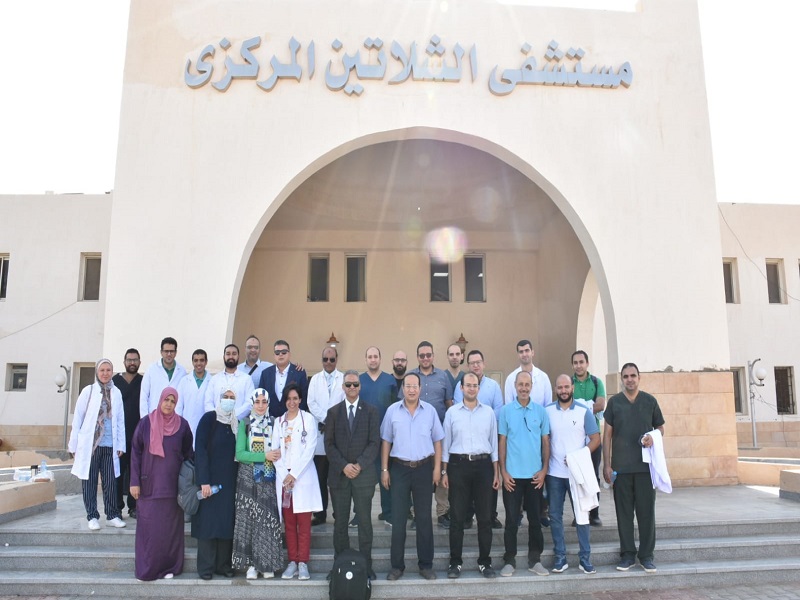Ain Shams University comprehensive development convoy for the Shalatin, Halayeb, and Abu Ramad regions
Based on the pioneering community role of Ain Shams University, the Ain Shams University Comprehensive Developmental University convoy received the people of Shalatin, Halayeb, and Abu Ramad, under the patronage of Major General Staff Officer Dr. Amr Mohamed Hanafy, Governor of the Red Sea, and Prof. Ghada Farouk, Acting President of Ain Shams University. Vice President of the University for Community Service and Environmental Development, under the supervision of Prof. Hala Samir Sweid, Vice Dean of the Faculty of Medicine for Community and Environmental Affairs, and under administrative supervision by Major General Hossam El-Sherbiny, Assistant Secretary-General of the University for Community and Environmental Affairs.
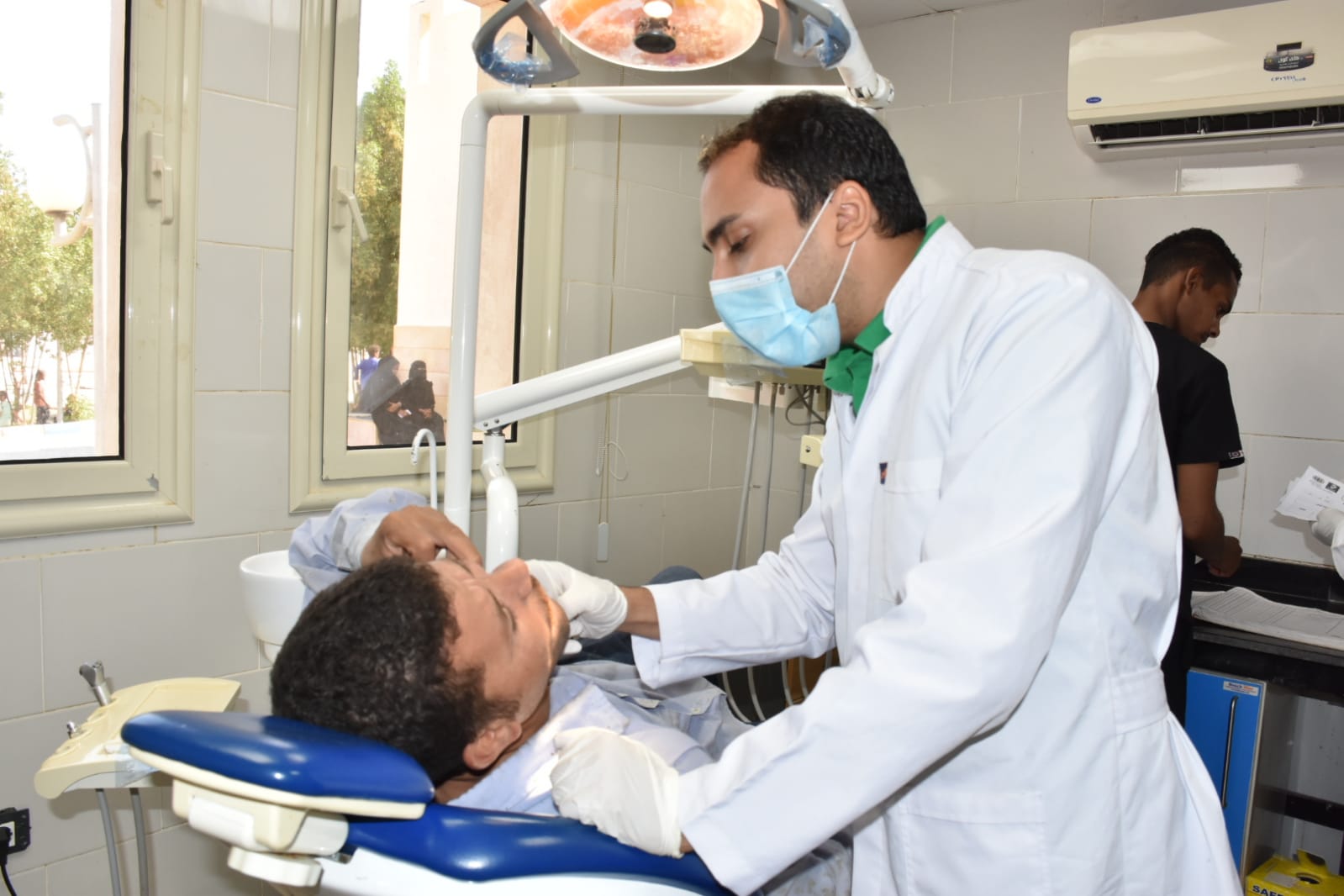 |
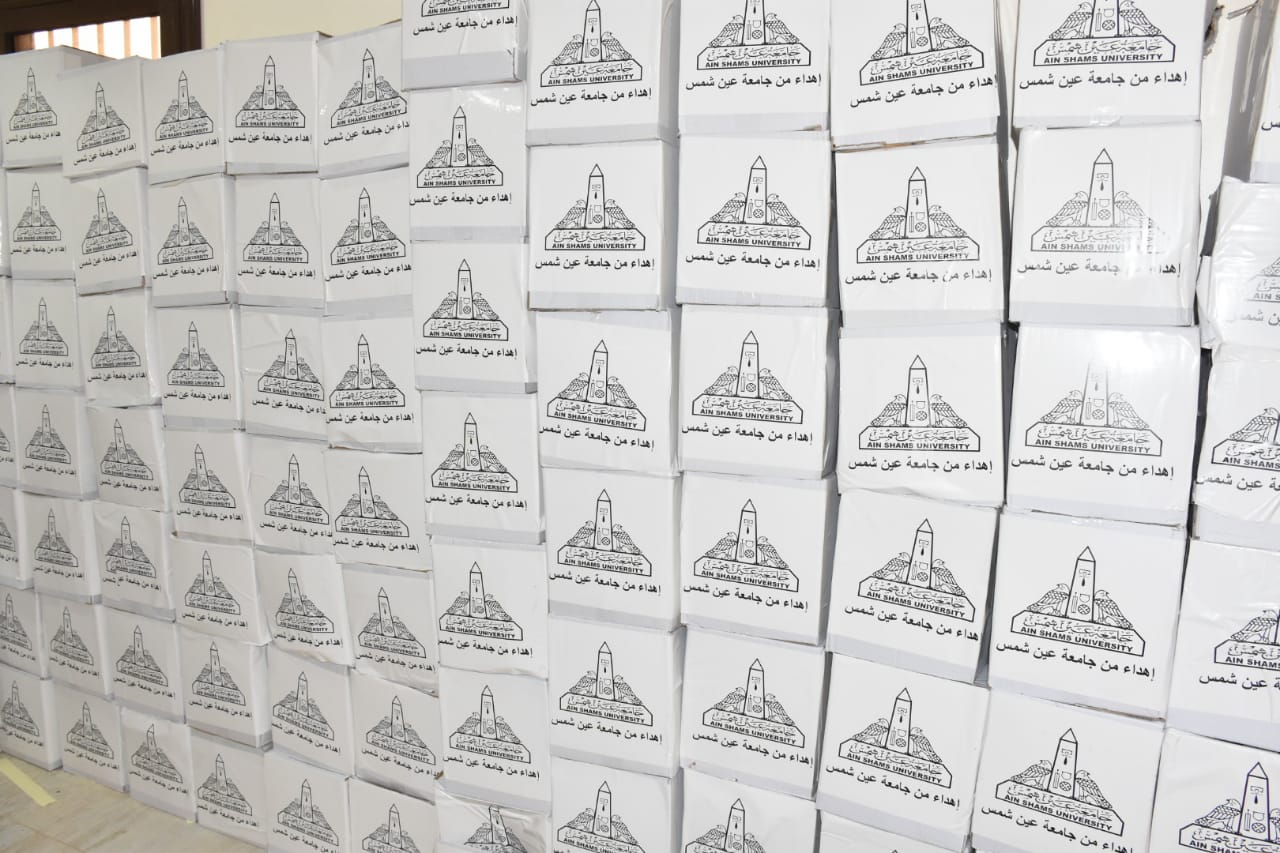 |
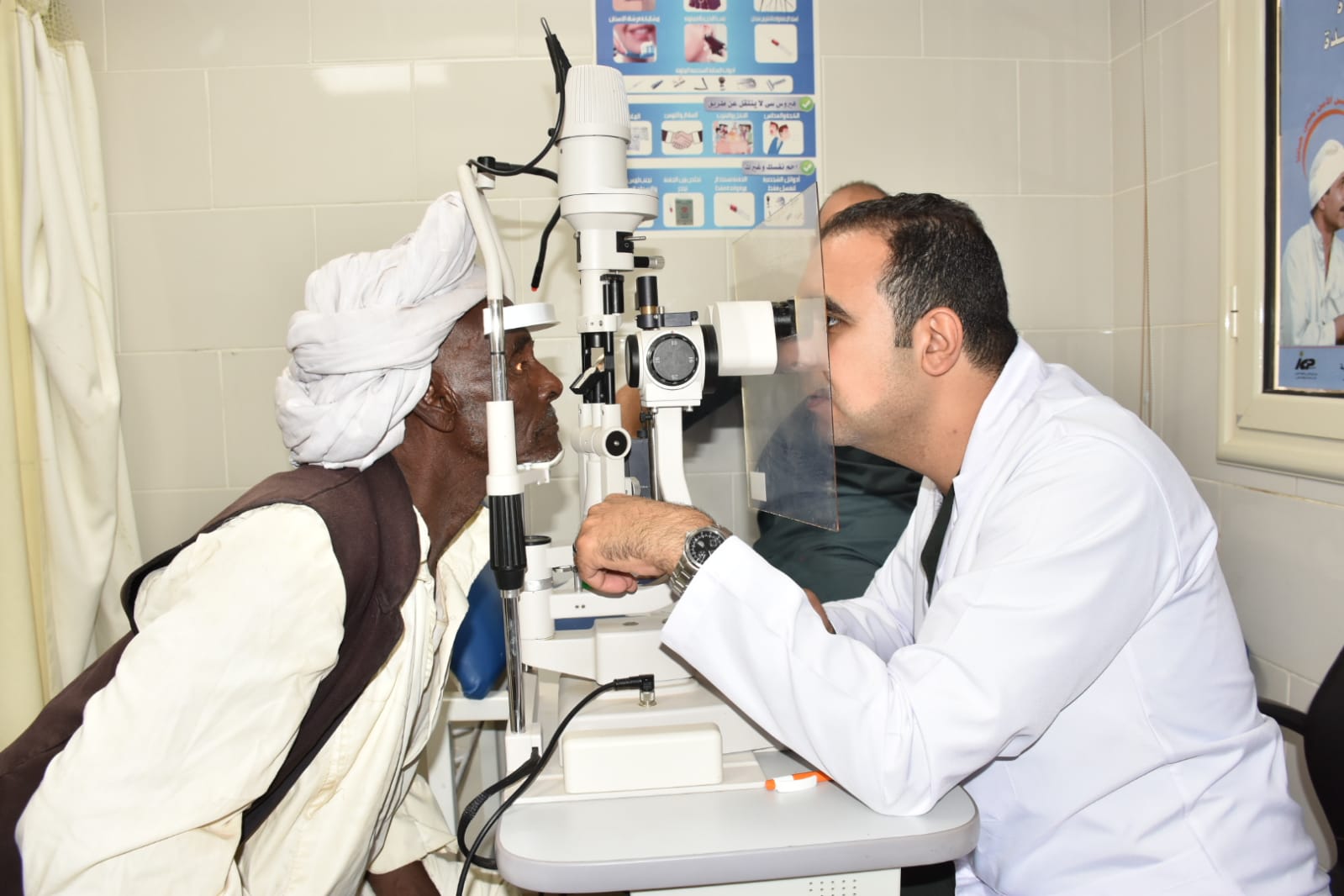 |
||
The activities of the convoy, organized by the Community Service and Environmental Development Affairs Sector, will continue during the period from the 29th of October to the 2nd of next November, as the convoy clinics received more than a thousand beneficiaries on its first day in the specialties of ear, nose, throat, orthopedic clinic, dermatology clinic, and internal medicine clinic. The heart clinic, the urinary tract clinic, the ophthalmia clinic, the children’s clinic, the chest clinic, the dental clinic, the psychiatric and neurological clinic, and a radiology clinic, in addition to the convoy pharmacy, which provided its free pharmaceutical service to more than a thousand beneficiaries, and 35 cases were transferred to continue receiving treatment at Ain Shams University Hospitals.
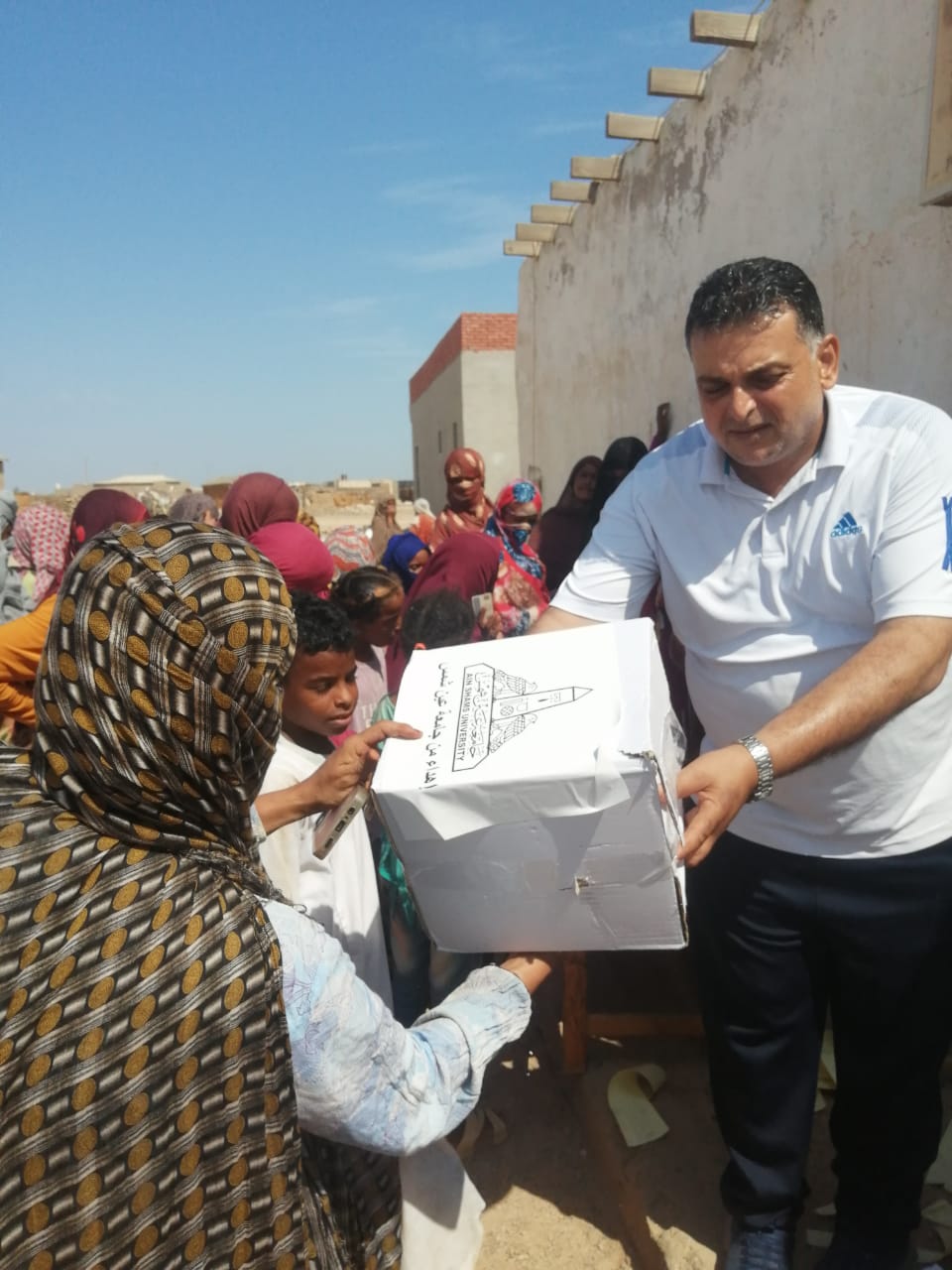 |
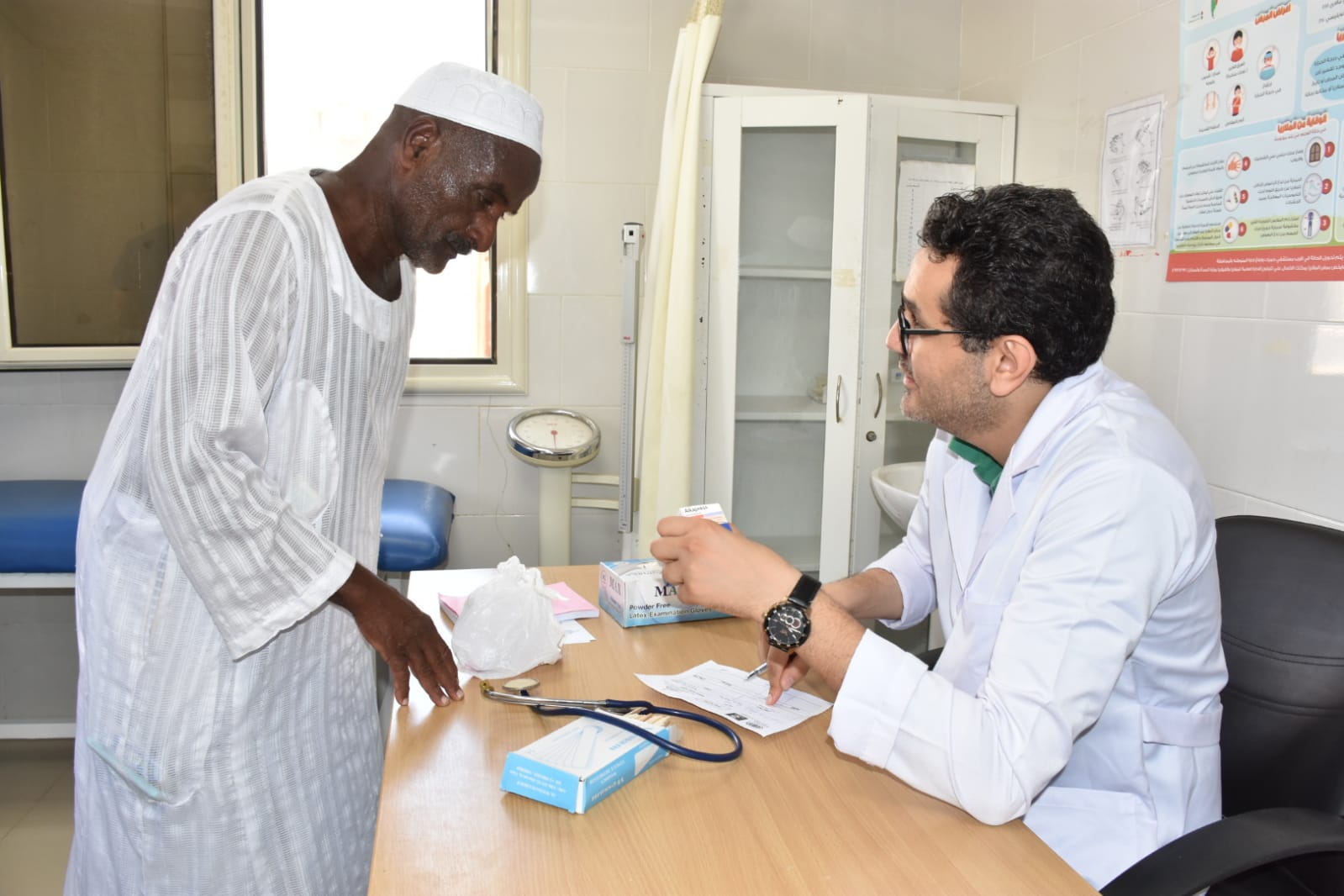 |
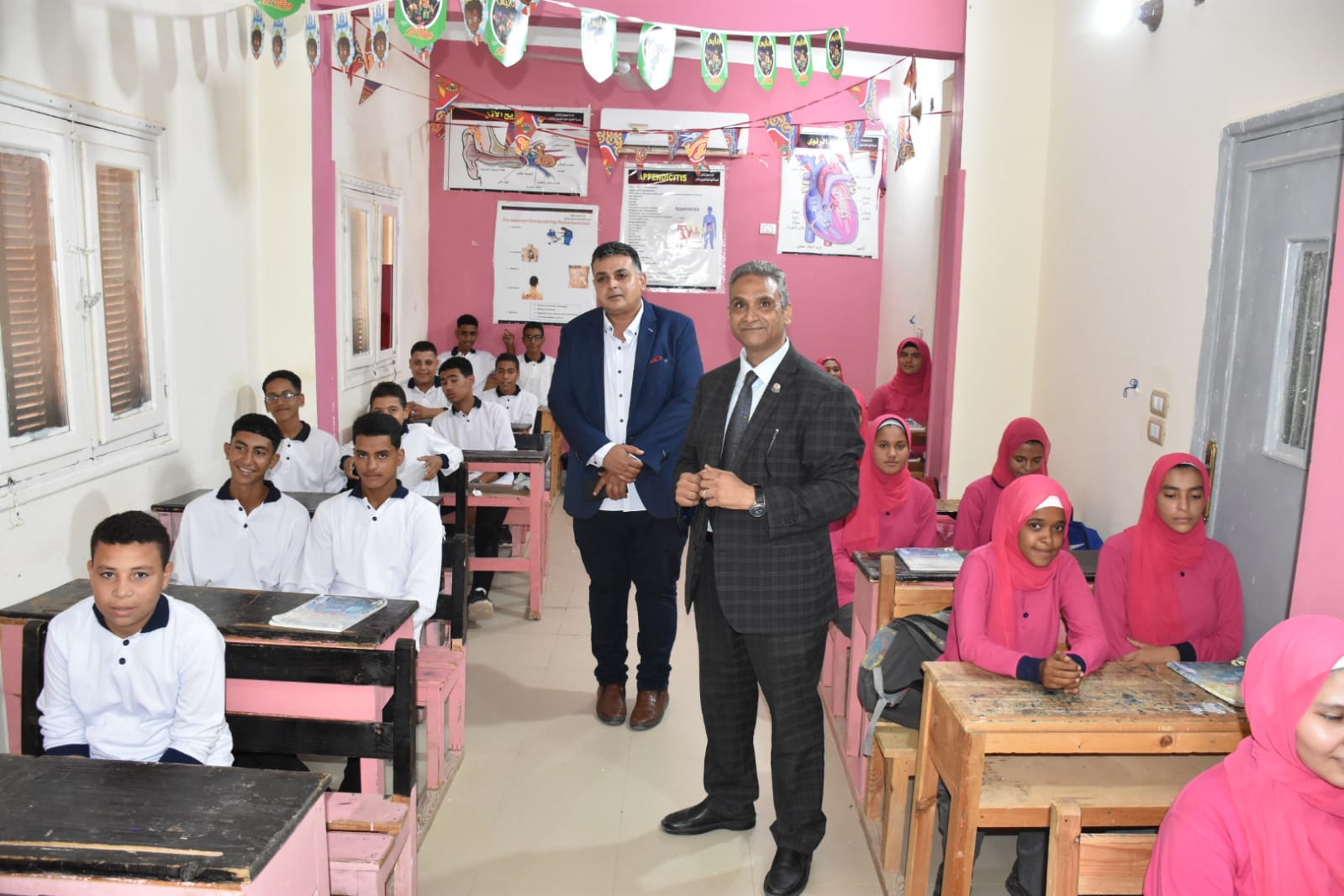 |
||
Awareness campaigns were also presented entitled “Negative phenomena in society, causes, methods of prevention and treatment,” and another called “Effective communication skills to provide distinguished medical service.”
During the convoy, 8,000 cartons of food supplies were provided to the people of the region.
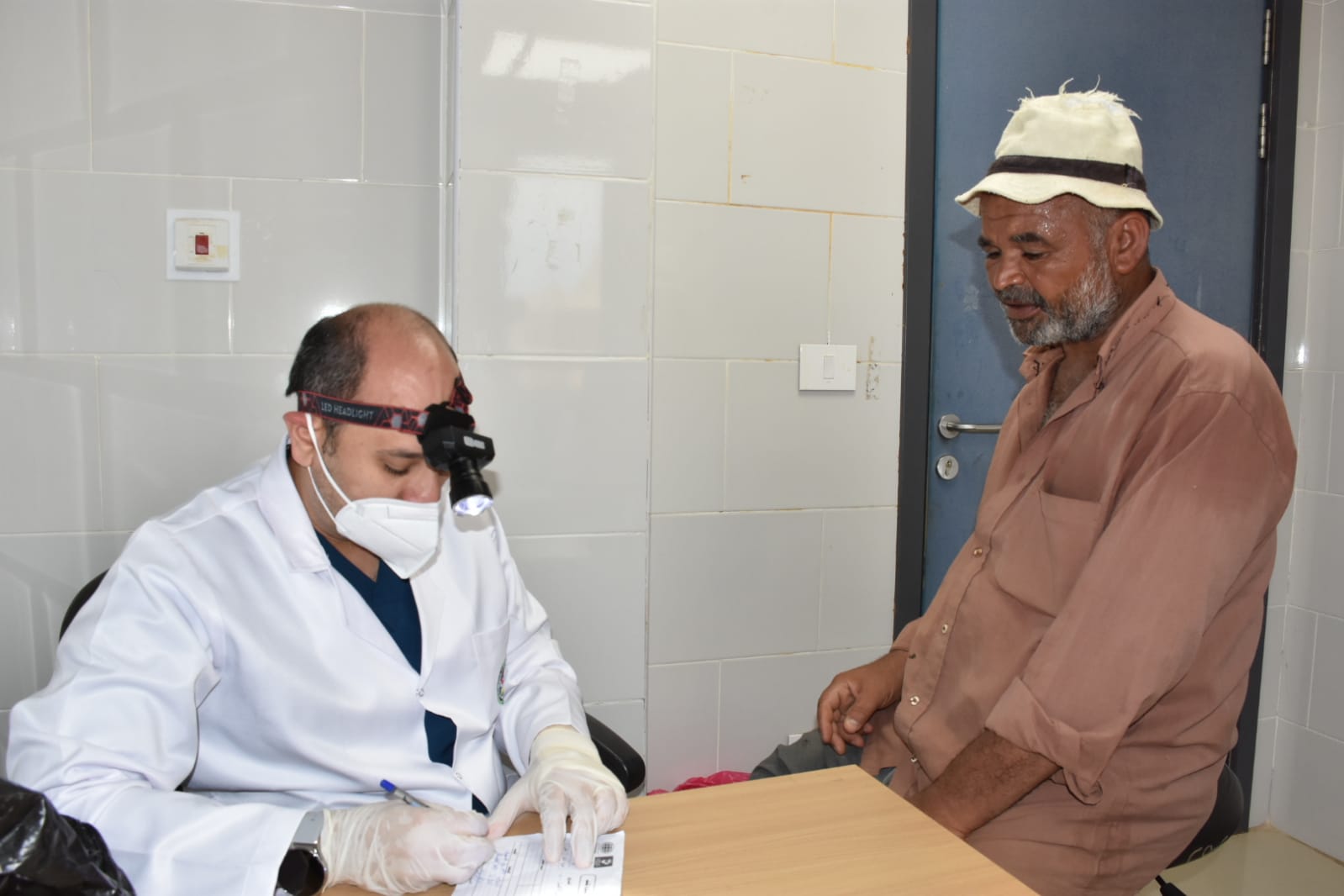 |
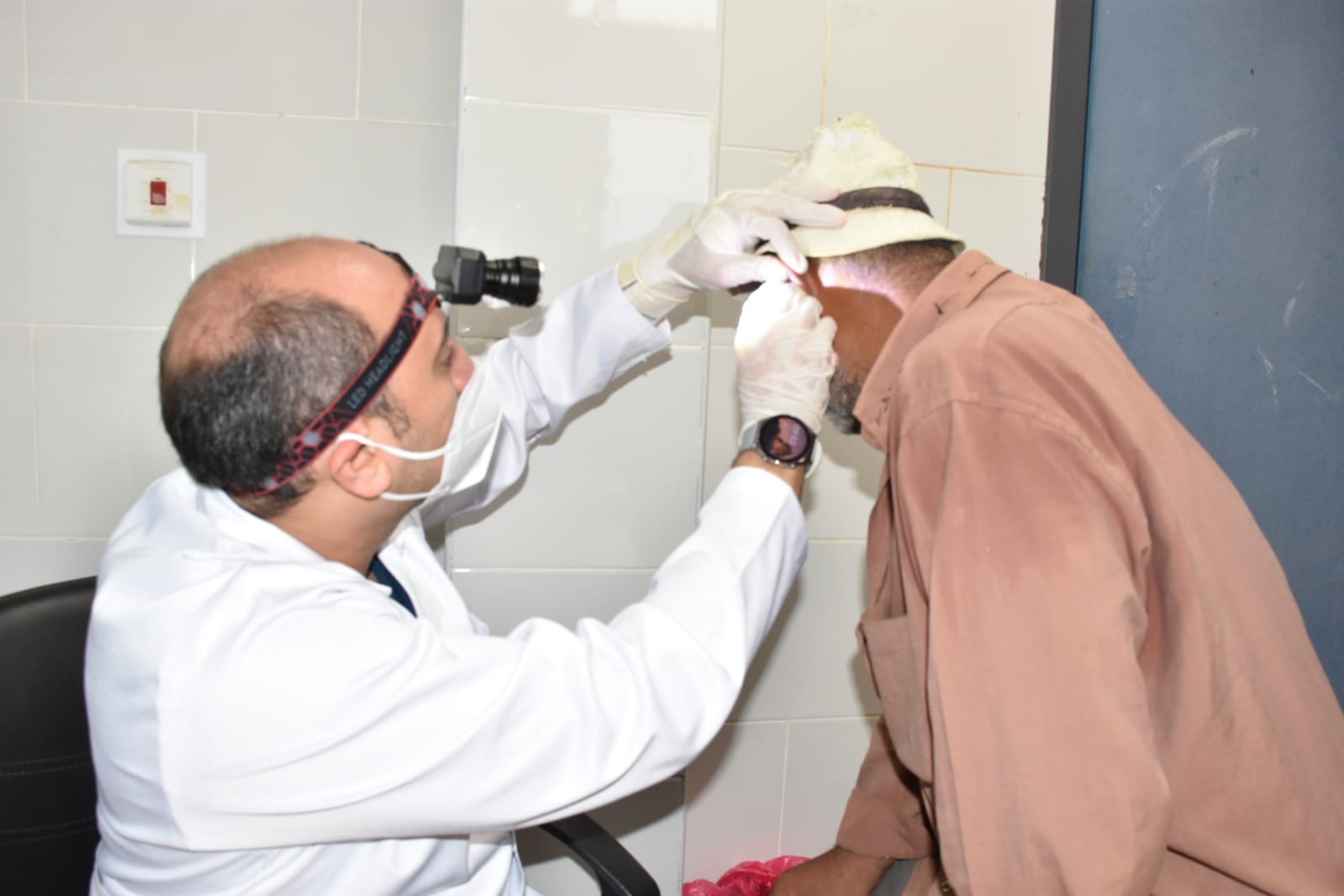 |
 |
||


.svg)

